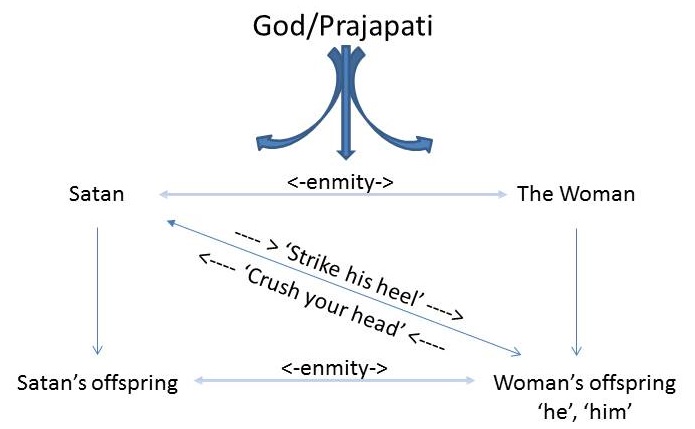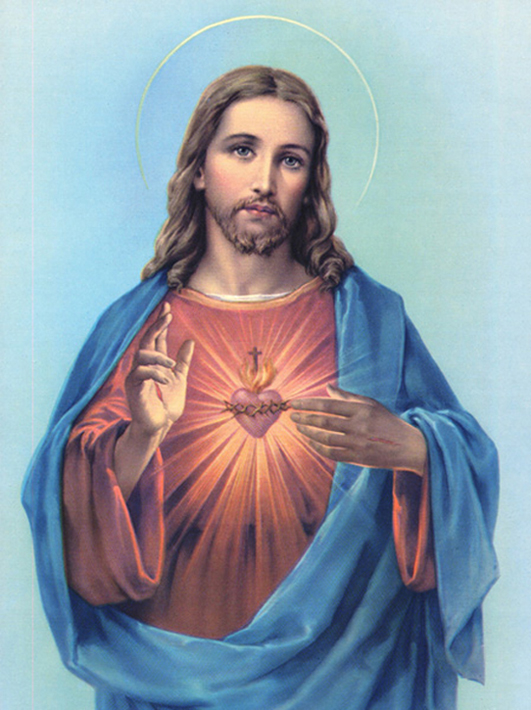We have seen how how mankind fell from their initial created state. But the Bible (Veda Pusthakam) continues with a plan that God had right from the beginning. This plan centered on a Promise that was issued back then and is the same plan that echoes in the Purusasukta.
The Bible – Really a Library
To appreciate the significance of this Promise we must know some basic facts about the Bible. Though it is a book, and we think of it as such, it is more accurate to think of it as a mobile library. This is because it is a collection of books, written by a diverse set of authors, over a time span over 1500 years. Today these books are bound in into one volume – the Bible. This fact alone makes the Bible uniquely like the Rg Vedas among the Great Books of the world. In addition to the diverse authorship, the different books of the Bible make statements, declarations and predictions that later writers follow up with. If the Bible was written by just one author, or a group of authors that knew each other, that would not be significant. But the authors of the Bible are separated by hundreds and even thousands of years, writing in different civilizations, languages, social strata, and literary genres – yet their messages and predictions are developed further by later authors or are fulfilled through facts of history verified outside the Bible. This makes the Bible unique on a whole different level – and should motivate us to understand its message. Existing manuscript copies of the Old Testament books (the books that precede Jesus) are dated to about 200 BC so the textual base of the Bible is better, by far, than all other ancient books of the world.
The Promise of Moksha in the Garden
We see this ‘looking forward’ to later events in the Creation and Fall account right at the beginning of the book of Genesis in the Bible. In other words, though it is recounting the Beginning, it was written with the End in view. Here we see a Promise when God confronts His adversary Satan, the personification of evil who was in form of a serpent, and speaks to him in a riddle just after Satan has brought about the human fall:
“… and I (God) will put enmity between you (Satan) and the woman and between your offspring and hers. He will crush your head and you will strike his heel.” (Genesis 3:15)
Reading carefully you will see that there are five different characters mentioned and that this is prophetic in that it is looking forward-in-time (seen by the repeated use of ‘will’ as in future tense). The characters are:
- God/Prajapati
- Satan/serpent
- The woman
- The offspring of the woman
- The offspring of Satan
And the riddle predicts how these characters will relate to each other in the future. This is shown below

God will arrange that both Satan and the woman will have an ‘offspring’. There will be ‘enmity’ or hatred between these offspring and between the woman and Satan. Satan will ‘strike the heel’ of the offspring of the woman while the offspring of the woman will ‘crush the head’ of Satan.
Deductions on the Offspring – a ‘he’
So far we have just made observations directly from the text. Now for some reasoned deductions. Because the ‘offspring’ of the woman is referred to as a ‘he’ and a ‘his’ we know that it is a single male human – a man. With that we can discard some possible interpretations. As a ‘he’ the offspring is not a ‘she’ and thus cannot be a woman. As a ‘he’ the offspring is not a ‘they’, which it could have plausibly been, perhaps a group of people, or a race, or a team, or a nation. At various times and in various ways people have thought that a ‘they’ would be the answer. But the offspring, being a ‘he’ is NOT a group of people whether that refers to a nation or those of a certain religion as in Hindus, Buddhists, Christians, Muslims, or even a caste . As a ‘he’ the offspring is not an ‘it’ (the offspring is a person). This eliminates the possibility that the offspring is a particular philosophy, teaching, technology, political system, or religion. An ‘it’ of these kinds would probably have been, and still is, our preferred choice to fix the world. We think that what will fix our situation is some kind of ‘it’, so the best of human thinkers through the centuries have argued for different political systems, educational systems, technologies, religions etc. But this Promise points in a totally different direction. God had something else in mind – a ‘he’. And this ‘he’ would crush the head of the serpent.
Also, it is interesting to note what is not said. God does not promise the man an offspring like he promises the woman. This is quite extraordinary especially given the emphasis of sons coming through fathers throughout the Bible, and throughout the ancient world. But in this case there is no promise of an offspring (a ‘he’) coming from a man. It says only that there will be an offspring coming from the woman, without mentioning a man.
Out of all the humans that have ever existed, historically or mythically, only one claimed to have had a mother but at the same time never had a physical father. This was Jesus (Yeshu Satsang) who the New Testament (written thousands of years after this Promise was given) declares was born of a virgin – thus a mother but no human father. Is Jesus being foreshadowed here in this riddle right at the beginning of time? This fits with the observation that the offspring is a ‘he’, not a ‘she’, ‘they’ or ‘it’. With that perspective, some pieces of the puzzle fall into place.
‘Strike his Heel’??
What does it mean that Satan/serpent would strike ‘his heel’? I did not understand until I worked in the jungles of Africa. We had to wear thick rubber boots even in the humid heat – because the serpents there lay in the long grass and would strike your foot – i.e. your heel – and would kill you. My first day there I almost stepped on a serpent, and possibly could have died from it. The riddle made sense to me after that. The ‘he’ would destroy the serpent (‘crush your head’), but the price he would have to pay, would be that he would be killed (‘strike his heel’). That does foreshadow the victory achieved through the sacrifice of Jesus.
The offspring of the Serpent?
But who is his other enemy, this offspring of Satan? Though we do not have space here to trace it out exhaustively, the later books speak of a coming person. Note this description:
Concerning the coming of our Lord Jesus Christ and our being gathered to him … Don’t let anyone deceive you in any way, for that day will not come until the rebellion occurs and the man of lawlessness is revealed, the man doomed to destruction. He will oppose and will exalt himself over everything that is called God or is worshiped, so that he sets himself up in God’s temple, proclaiming himself to be God. (2 Thessalonians 2:1-4; written by Paul in Greece ca 50 AD)
These later books explicitly speak of a countdown to a clash between the offspring of the woman and Satan’s offspring. But it is first mentioned in embryo-like form in this Promise of Genesis, at the very beginning of human history, with details waiting to be filled in. So the climax of history, the countdown to a final contest between Satan and God, is foreseen in the earliest Book.
Previously we have journeyed through the ancient hymn Purusasukta. We saw that this hymn also predicted the coming of a Perfect Man – Purusa – a man who would also come ‘not by human power’. This man would be also given in sacrifice. In fact we saw that this was decided and determined in the mind and heart of God at the beginning of time. Are these two books speaking of the same person? I believe that they are. The Purusasukta and the Genesis Promise remember the same event – when God decided that He would one day incarnate as a man so that this man could be given in sacrifice – the universal need for all humans no matter what their religion. But this Promise is not the only similarity between the Rg Veda and the Bible. Since they record the earliest in human history they also record other events together which we look at next.


